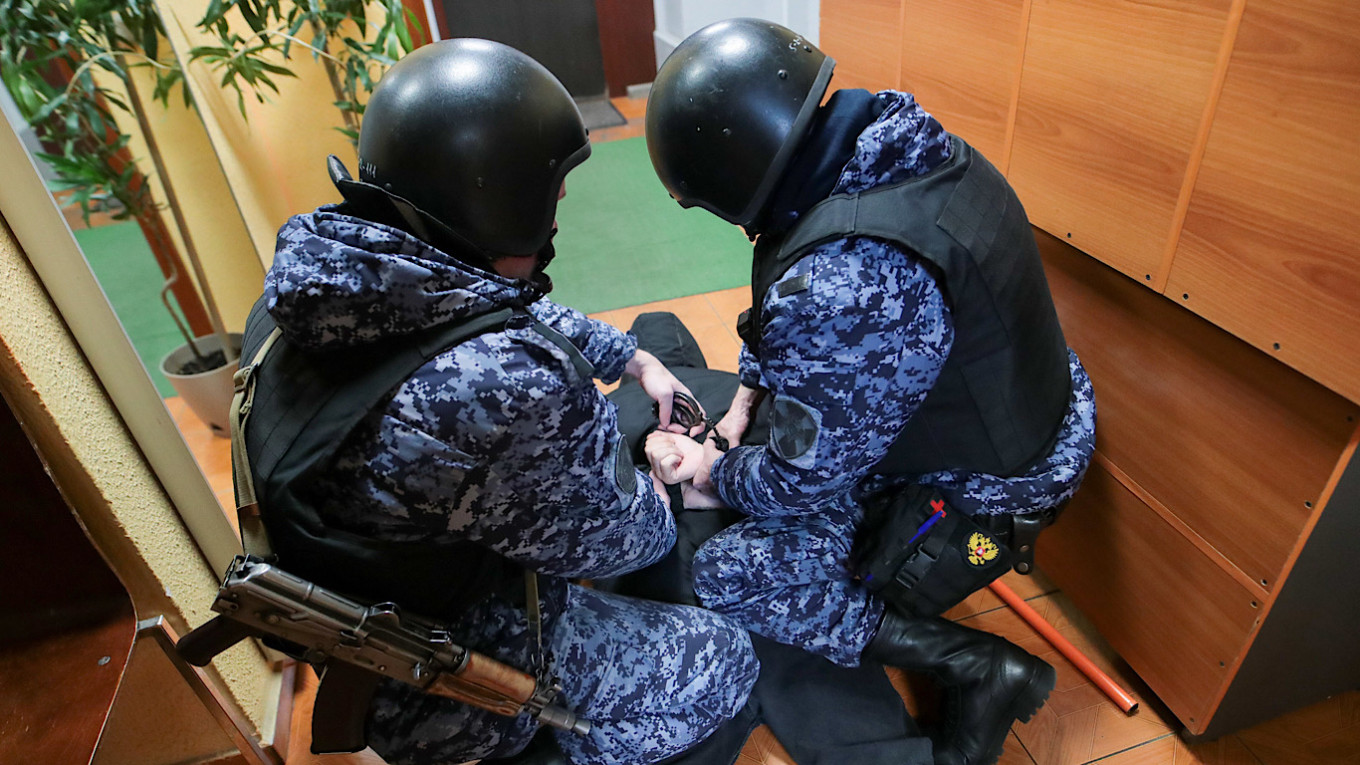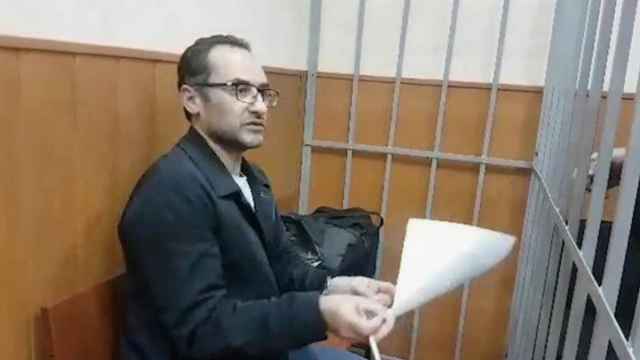Russia’s FSB security service said Wednesday that it arrested an African man in the southern city of Astrakhan on accusations of spying for Ukraine.
The man, identified only as a citizen of a North African country, was officially registered as a foreign resident living in Astrakhan, the FSB said.
Law enforcement authorities claimed the man contacted Ukrainian intelligence officers online, after which he “gathered and transmitted information” about military sites and critical infrastructure in Astrakhan so that it could be used against Russia.
The man was charged with espionage, which carries a maximum sentence of 20 years in prison.
A video shared by Russian state news agencies showed masked FSB agents escorting the man, his face blurred, in and out of government buildings.
It was not immediately clear how the man had pleaded to the charges or whether diplomats from his country were assisting him. Ukraine has not commented on the allegations.
In its statement, the FSB said the case underscored Ukraine’s alleged efforts to recruit agents in Russia through messaging platforms such as WhatsApp and Telegram.
A Message from The Moscow Times:
Dear readers,
We are facing unprecedented challenges. Russia's Prosecutor General's Office has designated The Moscow Times as an "undesirable" organization, criminalizing our work and putting our staff at risk of prosecution. This follows our earlier unjust labeling as a "foreign agent."
These actions are direct attempts to silence independent journalism in Russia. The authorities claim our work "discredits the decisions of the Russian leadership." We see things differently: we strive to provide accurate, unbiased reporting on Russia.
We, the journalists of The Moscow Times, refuse to be silenced. But to continue our work, we need your help.
Your support, no matter how small, makes a world of difference. If you can, please support us monthly starting from just $2. It's quick to set up, and every contribution makes a significant impact.
By supporting The Moscow Times, you're defending open, independent journalism in the face of repression. Thank you for standing with us.
Remind me later.






